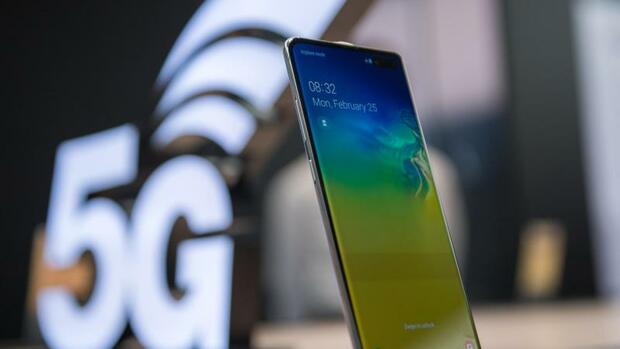Against the general trend: prices for 5G smartphones continue to fall, industry experts predict. Photo: Andrea Warnecke/dpa-tmn
On the other hand, 5G technology will probably still be found in smartphones of almost all price ranges in 2022. It was not long ago that 5G-capable smartphones slipped below the price mark of 200 euros for the first time. The 150-Euro mark is also likely to be undercut soon and establish 5G even in entry-level smartphones.
Price war for 5G processors
The reason for this is stated by the industry journal “Digitimes”: an emerging price war between the two largest manufacturers of 5G-capable smartphone processors, Mediatek and Qualcomm. It is foreseeable that they will undercut each other in chip prices during the second quarter. Because the mobile phone manufacturers also have large stocks of 5G processors due to falling smartphone demand.
This constellation could also lead to middle-class smartphones becoming even cheaper or being equipped more often with more powerful 5G chips, which were previously reserved for upper-class devices.
What 5G contracts are there?
But what’s the benefit of the fastest, 5G-capable smartphone without a 5G network and contract? 5G networks are now offered by all network operators, i.e. Telekom, Vodafone and O2 (Telefónica). In addition, 1&1 will build its own 5G network. Term contracts with 5G activation cost according to “Teltarif.de ” currently at least 30 euros a month.
Prepaid contracts with 5G option are therefore available at Telekom and Vodafone from around 20 euros per month. With cheaper prepaid contracts, you have to pay about 3 euros extra per month for 5G. Depending on the tariff, a time-limited, free 5G test is also possible. With the “O2 Test Card”, O2 offers a 30-day, non-binding test run for 5G. The mobile phone discounters are still out of the question when it comes to 5G.
What can 5G do?
And what is so special about 5G now? In short: 5G networks offer very high bandwidths, so they can transfer data extremely quickly. Another advantage is the low response time (low latency).
At the moment, however, most of the 5G networks in Germany are not yet stand-alone, explains “Teltarif.de “. Rather, 5G usually complements the existing LTE networks. This combination offers higher data transmission speeds than pure LTE networks. However, combi networks, for example, still lack the low response time, since this is only possible in stand-alone 5G networks.








